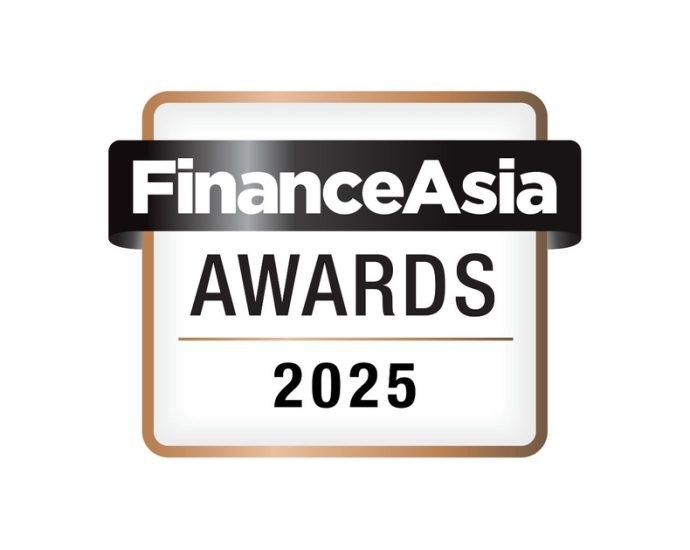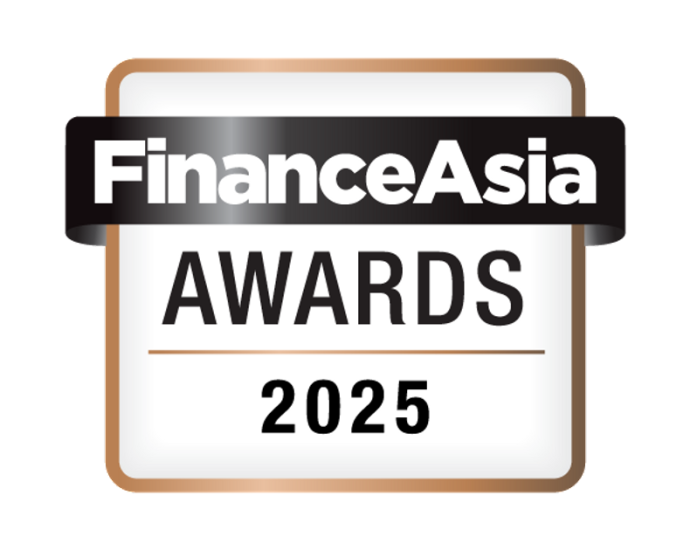China, Japan, Korea sense Trump trade war weakness – Asia Times
TOKYO – Asia is breathing somewhat easier as Donald Trump confronts the limits of his ability to self-immolate the US economy.
Amid historically free-falling markets and an Oval Office intervention by the CEOs of Walmart, Target and Home Depot, the US president is watering down a tariff policy, including a 145% levy on China, that’s already rocked the global economy.
It’s unclear whether the climbdown, where Trump said this week he would “substantially” pare back tariffs on China in a trade deal, is real or lasting. On Thursday, he blasted China anew on social media for canceling delivery of Boeing-made jets and its role in the continued flow of fentanyl into the US.
But as Trump flinches, it’s clear his inner circle is distressed by how catastrophically the tariff policy is going down with markets. Many are coming to the conclusion that the Trump White House’s standing will never be the same on Wall Street.
Asian leaders are right to smell blood in the water. In the short run, Japan and South Korea can take a beat as Trump World tries to rally fleeing global investors back around the dollar and US Treasuries.
For one thing, Japanese Prime Minister Shigeru Ishiba and South Korea’s acting President Han Duck-soo now understand just how badly Trump needs a win, any win, on the trade front. This gives two of North Asia’s biggest economies greater leverage in talks than they had just a week ago.
For another, Xi Jinping now knows that China’s decision to push back instead of bowing to Trump’s threats and demands is paying off spectacularly. So is President Xi’s free-trade charm offensive from East to West as Trump torches friend and foe alike with arbitrary tariffs and bullying rhetoric.
Asian leaders now have scope to take a breath and regroup as Trump’s tariffs — particularly his 145% tax on China — trigger what Wedbush Securities analyst Dan Ives calls an “Armageddon scenario” for the US.
Recent reports of dissension in Trump’s top ranks shed light on his apparent pivot on “Liberation Day” tariffs. They include clashes between anti-China trade advisor Peter Navarro and US Treasury Secretary Scott Bessent spilling out into the open on a near-daily basis.
Yet Trump “blinked” first in his trade war, says economist David Rosenberg, founder of Rosenberg Research. The same goes for Trump backing away from earlier threats to fire Federal Reserve Chair Jerome Powell for not lowering rates as recession risks flash red.
“The blinking that the president is busily doing on trade and Powell has unleashed a follow-through on the short-covering rally,” Rosenberg says.
Trump pivoting first contrasts markedly with what China is saying. As Foreign Ministry spokesperson Guo Jiakun puts it: “China’s attitude towards the tariff war launched by the US is quite clear: We don’t want to fight, but we are not afraid of it. If we fight, we will fight to the end; if we talk, the door is wide open.”
To be sure, Beijing is reportedly considering suspending its 125% tariff on some US imports to limit economic fallout. Bloomberg reported today (April 25) that Beijing may remove additional levies on US-made medical equipment and some industrial chemicals like ethane, as well as waive tariffs on plane leases.
But the last month has shown what it looks like when an unstoppable force like Trump meets an immovable object like Xi’s China. But Trump just demonstrated that his pain threshold for tariffs is Wall Street-dependent.
It was headlines about the many trillions of dollars in stock losses, JPMorgan CEO Jamie Dimon being unhappy and Goldman Sachs talking recession that had the self-proclaimed “Tariff Man” changing his tune.
The only thing falling faster than the US dollar is Trump’s economic approval rating at home. A new Reuters/Ipsos poll puts it at 37% while roughly 75% of American adults worry recession is imminent.
Confidence is likely to fall even more precipitously as American households see their retirement account statements and feel tariffs boosting prices across the board. Market volatility also forced Trump to throttle back on plans to fire Powell, at least for now.
If you’re happy “just because Trump said he isn’t going to fire Powell in an era in which the independence of central banks is going to be called into question by the demands of realpolitik, or because he said something nice about China and tariffs for the nth time as the world starts to divide along geopolitical lines, well clearly you enjoy fairy tales,” says Michael Every, global strategist at Rabobank.
At a business forum this week, veteran investment strategist Jim Paulsen said that “almost every corporate CEO is revising down their outlook. The commentary warnings of the corporate sector have escalated.”
Some titans of finance think many peers are being too dramatic about what damage Trump 2.0 might do in the long run. As C S Venkatakrishnan, CEO of Barclays, tells Bloomberg: “It’s 100 years of dollar strength, so much so that important commodities — gold, oil — are denominated in dollars. I think undoing that will take a long, long time.”
Yet Wedbush’s Ives speaks for many when he says Trump’s tariffs, and the chaos surrounding their implementation, “will go down as the worst US policy mistake” since the Smoot-Hawley Tariff Act of 1930, which amplified the Great Depression.
China’s Commerce Ministry has been making a similar point, calling the US tariff moves “a mistake on top of a mistake.”
Then, after the US president vowed to ratchet up tariffs again this week, Beijing once again vowed to hold the line.
It has since clashed with Trump by insisting no trade talks are underway, which the US leader has insisted are happening behind the scenes without naming who was involved.
At a forum in Washington sponsored by Semafor this week, Citadel CEO and founder Ken Griffin warned that a Trump reversal might be too little, too late. Before the tariffs, “no brand compared” to US Treasurys, the dollar or the creditworthiness of the biggest economy. That’s now been “eroded” in short order.
“We put that brand at risk,” the billionaire hedge fund manager said. “It can be a lifetime to repair the damage that has been done.”
The financial dust cloud Trump leaves behind could play into Asia’s hands as trade negotiations are expected to heat up in coming weeks amid a 90-day pause on the imposition of his reciprocal tariffs on all global nations.
China now knows, for example, that the bond market can rattle Trump. The recent surge in yields clearly unnerved Trump’s inner circle.
And it put on display the extent to which the US is just as vulnerable as it’s perceived to be strong. Beijing holds some US$760 billion of US Treasuries.
Chinese state media regularly discusses the idea of selling, or scaling back purchases, as a retaliation tool some market watchers believe Beijing quietly did soon after Trump’s reciprocal tariff announcement.
It’s all making Trump desperate to change the narrative with a big trade deal win. The first opportunity on that front is Japan.
Of course, Team Trump is trying to put on a brave face. Asked on Wednesday whether Trump had unilaterally offered to de-escalate trade tensions with China, Treasury head Bessent claimed “not at all.”
“As I’ve said many times, I don’t think either side believes that the current tariff levels are sustainable, so I would not be surprised if they went down in a mutual way,” Bessent said.
One possible takeaway from Bessent’s comments is that they “underscored that the United States is not aiming to decouple from China,” says Thomas Lee, head of research at Fundstrat Global Advisors.
Lee points to Trump’s press secretary claiming there are “ongoing trade discussions with 34 countries and referencing President Trump’s optimistic outlook regarding a potential deal with China.”
Yet the lack of progress with Japan could be a warning sign for the White House.
Last week, Navarro tried to suggest a bilateral Japan deal was imminent. It was his Exhibit A for the argument that Trump’s “90 deals in 90 days” pledge remains operational.
Yet Navarro was left holding only his ego when Tokyo reported that Economic Revitalization Minister Akazawa Ryosei was already back home with no deal in sight.
Seeing Trump caving this week, why wouldn’t Ishiba slow things down even further? This strategy worked well for former Prime Minister Shinzo Abe in 2019. Back then, the late Abe signed a bilateral deal that Trump touted as “phenomenal.”
But, in reality, Japan gave up less on agriculture than it had as part of the Trans-Pacific Partnership, a multilateral free trade pact that Trump scrapped. Autos were excluded and everything from pharmaceuticals to financial services was left to a future date.
The end result was negligible in altering US-Japan trade dynamics and “was a poignant reminder of how much President Trump gave away when he turned his back on the TPP,” observed economist Matthew Goodman, who at the time was at the Center for Strategic and International Studies.
It’s also a timely reminder of how far Ishiba can get with some flattery and moving slowly. Presumably, Trump’s inner circle is aware that Japan outmaneuvered Trump 1.0, just as China is so far getting the better of Trump 2.0.
But Trump World also knows the illusion of pulling off the “art of the deal” with Japan could be packaged as a badly needed trade war win.
Ishiba’s Liberal Democratic Party (LDP), after all, faces a tough national election in July. And with approval ratings around 26%, Ishiba can hardly appear to be getting fleeced by a Trump White House with no allies among major economies.
Any perception that Ishiba gave away too much to Trump could usher his LDP out of power a few months from now. Tokyo knows, too, that if they lather Trump with concessions, he’ll likely be back for more in short order.
South Korea’s negotiations could go a similar way. At the moment, Bessent is suggesting that US-Korea talks “may be moving faster than I thought, and we will be talking technical terms as early as next week.”
Perhaps. But just like China and Japan, South Korea has good reason to think its negotiating position is improving as Trump’s global standing and trade war credibility falls by the day.
Follow William Pesek on X at @WilliamPesek







.png&h=630&w=1200&q=100&v=5f99a4b43f&c=1)

.png&h=630&w=1200&q=100&v=5f99a4b43f&c=1)









